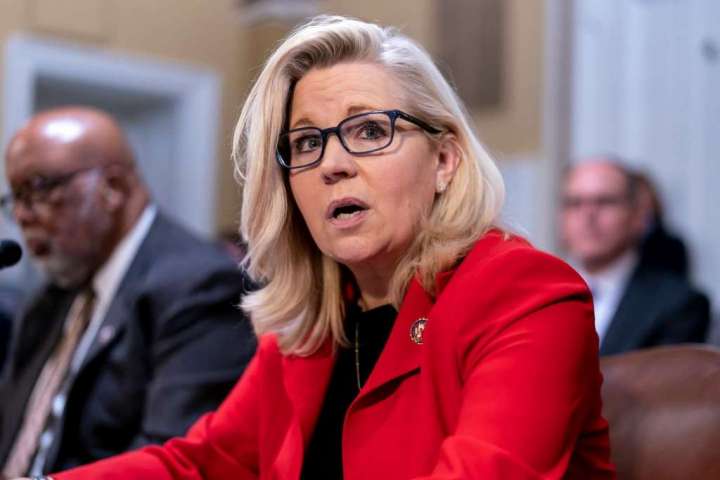After 11 months and more than 1,000 interviews, the House committee investigating the Jan. 6, 2021, attack on the U.S. Capitol by a pro-Trump mob has started sharing what it knows.
How to watch the Jan. 6 committee hearings and what to look for

There could be an additional hearing in September — right before the November midterm elections.
How to watch
The committee usually live-streams its hearings, and most major TV news stations have been airing the hearings in full. Fox News was the only major news network not to do so with the first hearing, which was in prime time.
The Washington Post will have anchored coverage and analysis before the hearings on YouTube and washingtonpost.com. C-SPAN will air all hearings in full. CNN.com will also stream the hearings, without requiring a cable subscription.
Who’s testifying
Plans have been changing quickly for which witnesses will appear before the committee, whether they will do so publicly or behind closed doors and in what format. (The Post’s Josh Dawsey reported, for example, that former White House counsel Pat Cipollone will testify on Friday, but in a closed-door session.)
Though some key Donald Trump allies and top Republican members of Congress have refused to testify, the committee has played snippets from taped interviews from about a half-dozen Trump aides, including former attorney general William P. Barr and Trump’s eldest daughter, Ivanka Trump.
The panel’s first witnesses included a Capitol Police officer who was badly injured in the attack, Caroline Edwards, who provided chilling testimony of what she called “a war scene.” A documentarian who embedded with the Proud Boys, Nick Quested, described evidence that the far-right, extremist group planned to attack the Capitol, and that the violence was not spontaneous.
The second hearing featured testimony from former Trump campaign staffers, a conservative election law expert and a Republican city commissioner in Philadelphia saying they did not see any evidence that the election was stolen. Yet Trump promoted these claims publicly, over and over again.
The third hearing featured testimony from Greg Jacob, a former top lawyer for Vice President Mike Pence, about how Trump’s lawyer pressured the vice president to overturn the election results. “It is unambiguous that the vice president does not have the authority to reject electors,” he told the committee. Retired federal judge J. Michael Luttig, who advised Pence during this time, testified that if Trump’s plan had gone forward, it “would have been the first constitutional crisis since the founding of the republic.”
The fourth hearing focused on how Trump and his allies pressured state officials to overturn the 2020 results, and the personal toll that campaign took. Elected officials including Arizona House speaker Russell “Rusty” Bowers (R) and Brad Raffensperger (R), Georgia’s secretary of state, offered startlingly emotional testimony about the threats and harassment that followed Trump’s public comments. Former Georgia election workers Shaye Moss and her mother, Ruby Freeman, also testified, describing how Trump and his attorney Rudy Giuliani upended their lives by falsely accusing them of ballot fraud.
The fifth hearing focused on how Trump pressured the Justice Department to help him overturn the election.
The sixth hearing featured testimony by a key witness, Cassidy Hutchinson, a top aide to Trump’s chief of staff, Mark Meadows. Hutchinson offered an intimate and at times shocking look at what unfolded in the West Wing the day of the attack.
What to watch for
Here’s what we know about the topics of the next hearings:
- The committee has not formally announced the topic of Tuesday’s hearing. Rep. Adam B. Schiff (D-Calif.), a member of the committee, said on “Face the Nation” that it would focus on “on the efforts to assemble that mob on the mall, who was participating, who was financing it, how it was organized” and the participation of groups including the Proud Boys and the Three Percenters.
- In later hearings, the committee will revisit Trump’s actions the day of the attack. The committee has accused him of having “summoned” right-wing groups to attack the Capitol, then resisting calls by his allies and family to tell the attackers to go home.
A major question to watch for: Will the committee conclude that Trump committed a crime by intentionally trying to stop Congress’s confirmation of Joe Biden’s win on Jan. 6, 2021? In the committee’s first prime-time hearing, Vice Chairwoman Liz Cheney (R-Wyo.) repeatedly used the term “corrupt” to describe Trump’s actions, a key term in determining whether Trump broke the law. The committee will have to prove that Trump knew his election fraud claims were false but he pushed them to stay in power anyway. (Congress’s power is limited here: Ultimately, the Justice Department would have to decide whether to prosecute.)
Another question the committee must grapple with: How to make the public care about the intricate details of an attack that’s more than a year old. In her opening remarks, Cheney said Trump’s actions posed a threat to the republic: “When a president fails to take the steps necessary to preserve our union or worse causes a constitutional crisis,” she said, “we’re at a moment of maximum danger for our republic.”
Have you been watching the Jan. 6 hearings? And why? Tell The Post.
This has been updated with the latest news.






